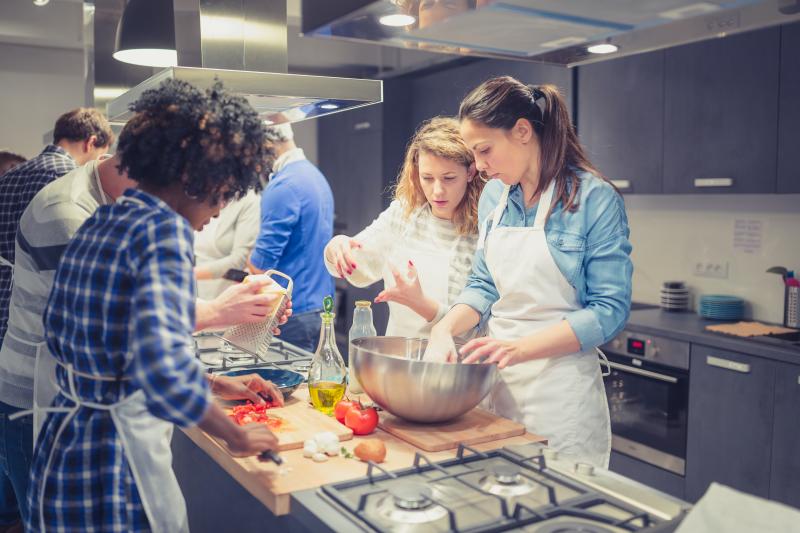31 Jan 2020
The problem
Young parents are time-poor and often find it stressful to deal with competing demands of child-care, cooking and work. Older people, often living on their own, can feel lonely and isolated. Cooking healthy food can be challenging for both.
Meat consumption has a huge impact - on climate emissions, our health and on animal welfare. Encouraging people to cook and eat veggie meals will help moves towards a more plant-based diet.
The challenge
Could we take the stress out of providing healthy food for babies and toddlers and older people by combining batch cooking and childcare on the same site?
The idea
Stage regular 2 hour stay-and-cook sessions in community spaces for parents, young children and retired people where participants take it in turns to cook healthy veggie meals together and supervise and entertain the children.
Adults will benefit from the free childcare and company and learn cooking tips from each other. Pre-school children play together, people can share a meal and everyone can take away portions of food to eat during the week.
How does it work?
- The scheme will need access to cheap healthy veg – could be surplus, donated unsold fresh veg from local supermarkets or bought in bulk – to be turned into simple 1-pot meals, pasta sauces, soups and stews.
- Kitchen and community space e.g. church halls or community centres.
- A coordinator and volunteers to ensure inclusion, support cooking and help with engaging participants and spreading the word.
- Agreement on how to fund venue hire and pay for food. We suggest people pay an entry contribution to the hall; parents pay a suggested donation per portion (both child and adult); older people pay per portion or it is funded by local authorities as an alternative to meals on wheels.
- Promote through health visitors, NCT (National Childbirth Trust) groups, GP surgeries. Create simple flyers for libraries, community centres, nurseries, childminders.
- May need to provide training in cooking and safe-guarding.
Benefits
An affordable alternative to expensive ready-meals for children and older people, providing companionship and a laugh, promoting well being and improving child-health.
Potential to help parents into food-based employment, enhance skills and support community-growing and self-sufficiency.
How do we know it works?
To be honest we haven't tested this beyond some informal conversations and a pitch at an event in Bristol where it was well received. It feels like a good idea.
Impact measurement
If you do decide to try this out, it's worth learning what's worked and whether it's been successful so you will need to set a baseline and time frame and measure a number of factors eg number of participants involved and for how long, number of meals served, how long the scheme has run, well-being scores.
We do not have the capacity to pilot this. But we think it could have legs.


